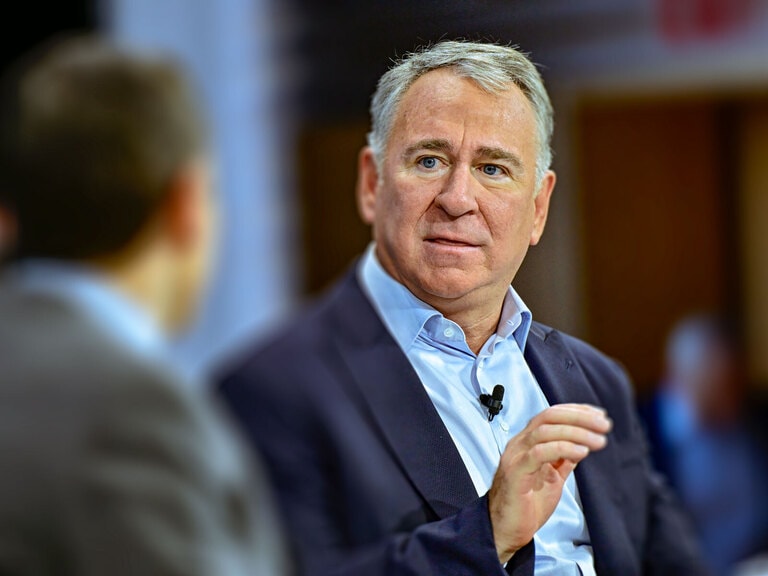The VanEck Biotech ETF has had a difficult start to the year, with biotech firms strained by the impact of inflation and dwindling interest in Covid-19 treatments. However, some of the ETF’s key stocks have seen growth in 2022 on the back of new developments, and the sector is well positioned for further expansion.
The VanEck Biotech ETF [BBH] has short-circuited this year as the Covid-19 pandemic fades and economic fears rise.
The BBH share price has slumped 18.5% so far in 2022 to $154.30 at the close on 22 April. That comes after a rally of 74.2% between 1 April 2020 and 31 August 2021.
The BBH seeks to replicate as closely as possible the price and yield performance of the MVIS US Listed Biotech 25 Index, which is intended to track the overall performance of companies involved in the development and production, marketing and sales of drugs based on genetic analysis and diagnostic equipment.
According to Yahoo Finance, as of 25 April it had a year-to-date total daily return of -18.4% and total net assets of $482.3m.
Pandemic pains
The difference is the Covid-19 pandemic. When the virus first hit, governments and the public looked to the medical and biotech sectors to quickly come up with drugs, diagnostics and vaccines, which provided a boost to key holdings in the VanEck Biotech ETF.
However, with vaccine rollouts slowing down since the end of 2021, the BBH has suffered. It has also been hit by higher inflation, interest rate hikes and fears over the global economy sparked by the Russian invasion of Ukraine. That has made investors more concerned about investing in growth and early-stage stocks.
With biotech you also have the added factor of, according to Barron’s, the “complexity of the science, and the inherent riskiness of the sector”.
Josh Nathan-Kazis of Barron’s told ETF Trends: “Over the past three years, the public markets have been flooded with risky, early-stage biotech firms, and generalists who rushed into the sector got a quick lesson in the risks of biotech investing. As hopes of an economic recovery rose, investors fled biotech, and the valuations of the stocks they left behind tumbled.”
Dr Christine Bardon, co-managing director of MPM Capital, added that the biotech market “saved the world” in 2020, but investor appetite was perhaps too overheated.
She told CNBC: “We’ve been in correction mode for the last 12 months, but we are now near the bottom. The long-term prospects for this industry look as great as ever. We have an ageing demographic and supportive regulatory environment.”
Long-term drivers
Indeed, Covid-19 variants still pose a danger and there is the threat of new viruses emerging. The success of companies such as Pfizer [PFE], Moderna [MRNA] and AstraZeneca [AZN.L] during the pandemic has also opened the governments and investors’ eyes to the sector’s vast potential and the role it could play in creating new vaccines or treatments for a range of diseases, including cancer and heart disease.
According to Global Market Insights, the biotechnology market was valued at around $497bn in 2020 and is set to grow at a compound annual growth rate of 9.4% between 2021 and 2027.
“Ongoing innovations and development associated with molecular biology has led to an advent of novel scientific disciples including genomics, metabolomics and proteomics. Growing use of biotech solutions has facilitated the development of therapeutic proteins and other drugs. The rising prevalence of chronic diseases has fuelled the need for drug discovery and development,” it states.
Key holdings up in 2022
It has 25 holdings, of which biotech company Amgen [AMGN] has the biggest weighting with 14.1%, followed by Vertex Pharmaceuticals [VRTX] (7.48%), Gilead Sciences [GILD] (7.26%), Regeneron Pharmaceuticals [REGN] (6.84%) and Moderna (6.55%).
At the close on 22 April the Amgen share price had climbed 12.2% year-to-date, helped by demand for its osteoporosis medication Prolia and high cholesterol drug Repatha. Regeneron Pharmaceuticals has seen its share price climb 9% since the start of the year, helped by demand for REGEN-COV, an antibody cocktail for the treatment and prevention of the disease. This is despite the US Food and Drug Administration stating in January that it is not as effective against the omicron variant and limiting its use.
However, it is also bolstered by eczema therapy Dupixent and it is looking to further beef up its portfolio by buying cancer drug maker Checkmate Pharmaceuticals for $250m.
Continue reading for FREE
- Includes free newsletter updates, unsubscribe anytime. Privacy policy





